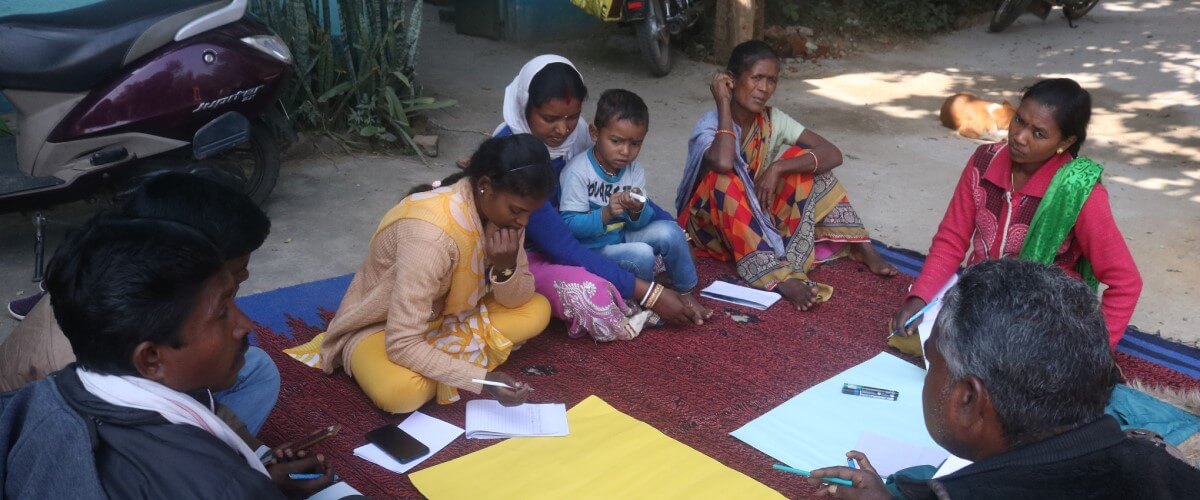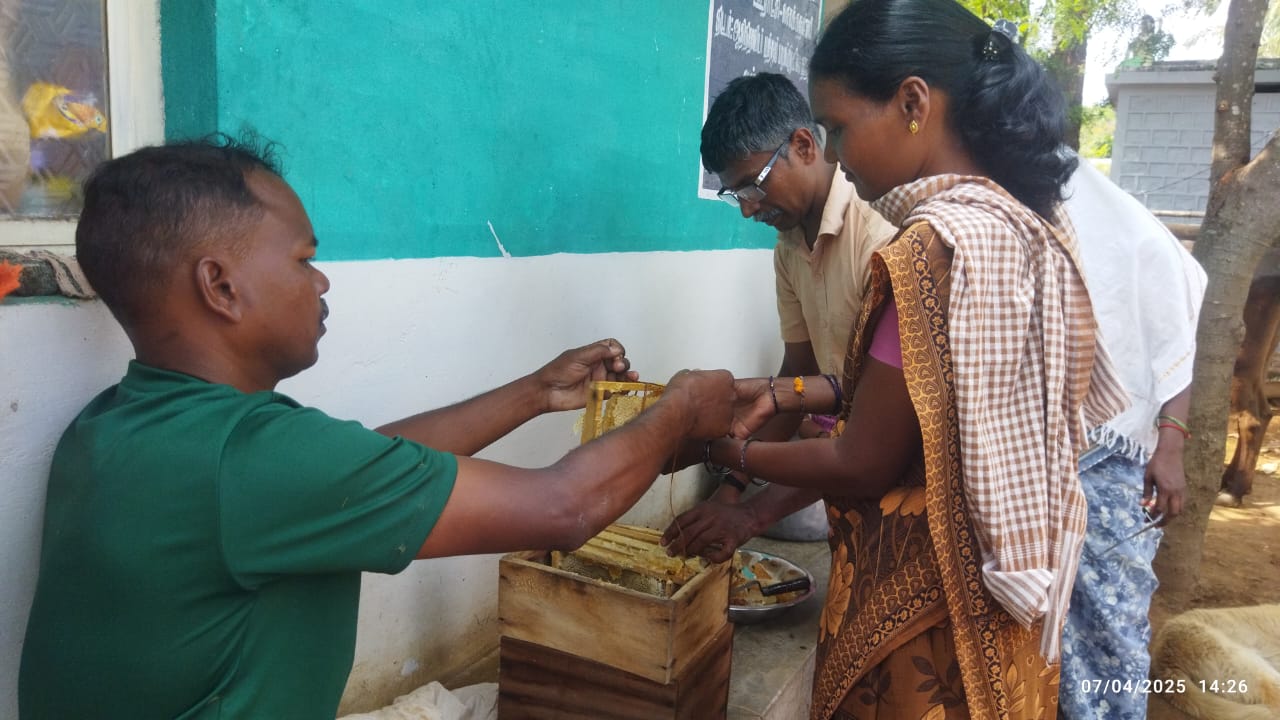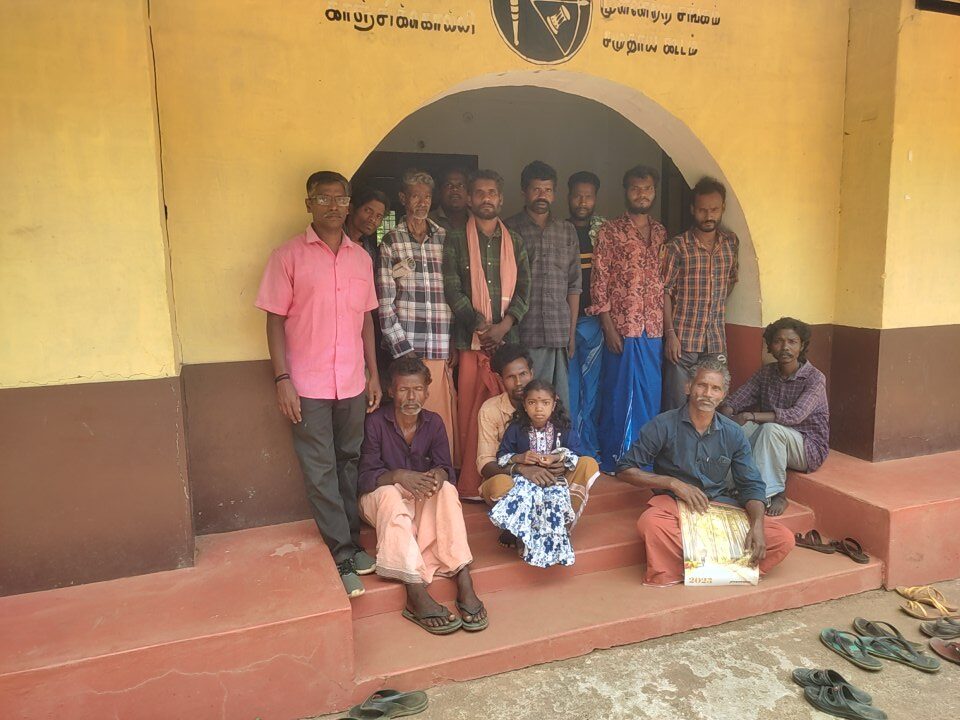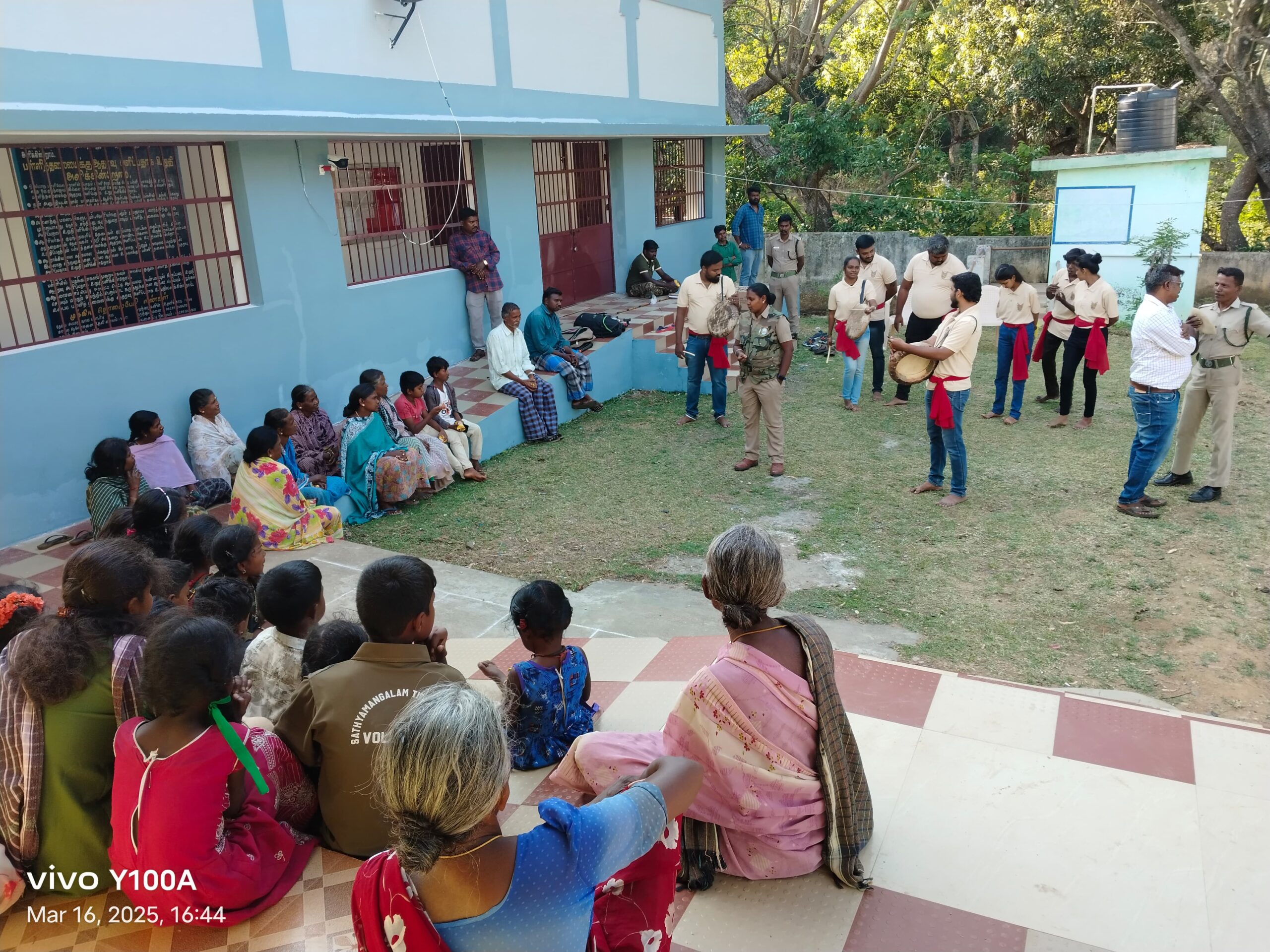December 15, 2022
By Networks & Alliances team
On December 14 and 15, we conducted a two-day awareness building exercise and training programme on ecological practices in agriculture at the premises of Paryavaran Chetna Kendra (PCK) at Potka, East Singbhum District, Jharkhand. The training was conducted by Soumik Banerjee, and involved community fellows, partner representatives and farmers from Manoharpur block and Noamundi block, West Singbhum district, Saraikela Kharswan district, Musabani and Potka blocks, and Purulia district (West Bengal). A total of 36 participants comprising 18 men and 18 women attended. Keystone’s projects being implemented in this region were represented at the programme – the Using Diversity project, the Eastern India initiative and PNF GAGGA fellowships.
After a round of introductions, Soumik presented an overview of natural systems, speaking about how forests and farmlands compare as carbon sinks, forest food webs and the role of organisms in ecosystems, the impact of chemical-based agriculture on wild pollinators and their role in our food system, and so on. He highlighted how the Fallow Forest Food landscape for the Paharia people of Sundar Pahari is distributed across six dimensions providing edible plants, fruits, vegetables, stalks, greens, seeds, kernels, tubers, roots and more all round the year. He spoke in depth about soil health, and the concept of ‘living soil’. Soumik ended with a comparison between chemical-based food production and natural regenerative systems.
A major issue brought up by Soumik was the heavy dependence on water availability, as nutrients are absorbed as simple ions from a soil-water solution. As a consequence, chemical agriculture is extremely difficult to carry out successfully in areas of water scarcity. Since most areas and lands the participants came from suffer from water scarcity, Soumik stressed that chemical agriculture was not viable.
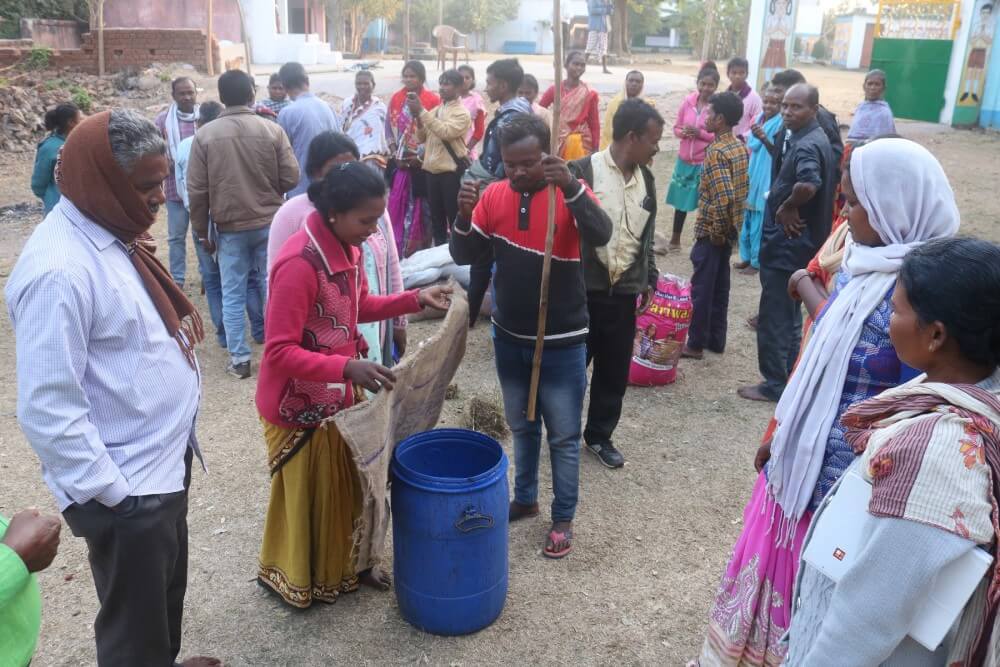
The participants shared experiences regarding the gradual shift away from traditional agricultural to increased use of chemical inputs. This was followed by practical demonstration on the preparation of two organic fertilisers – Jeev Amrit and Ghan Jeev Amrit. These organic fertlisers make use of locally available ingredients like cow dung, cow urine, jaggery, besan or chickpea flour, mud from termite mounds and water. A 200-litre drum, jute sacks and a broom help scatter the preparation. Soumik demonstrated the preparation for one acre of land, with participants then forming groups to try the methods themselves. Jeev Amrit takes around three to five days to prepare and needs to be used within two weeks. It can be used to prepare Ghan Jeev Amrit when cow manure is added to the former, takes two to three days to prepare, and can be stored for up to six months.
The second day saw a practical demonstration of the preparation of two organic pesticides. The first Paanch Patta Akra or Five Leaf Extract involved the use of any three to five toxic leaves that either livestock don’t eat or which release milk when broken. This pesticide takes three to five days to prepare and should be used fresh as it loses its potency if stored. The ideal time to spray this mixture on plants is in the evening in the absence of strong winds and rain. All kinds of insects can be kept under control with this pesticide, and it should be sprayed every two weeks as a preventive measure against insect attacks.

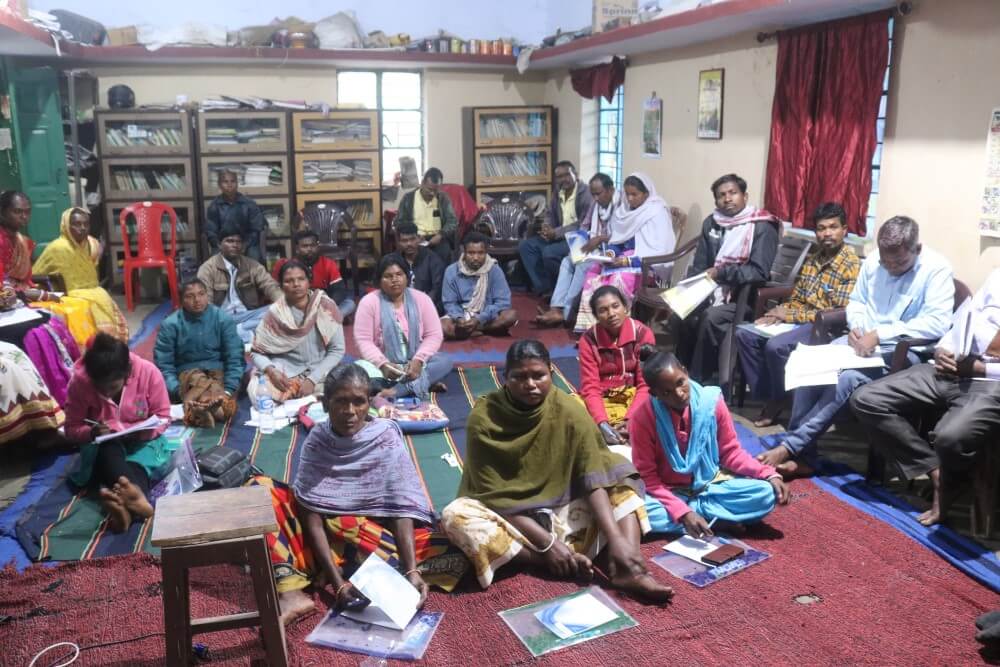
The final demonstration involved the preparation of Khatti Chhans ya Matha which is a made from curdled milk. This is used to address fungal, bacterial and viral infections and can be used on a monthly basis as a preventive.
The practical demonstrations were followed by a group exercise for participants. The participants were divided into 3 groups and asked to answer the following questions –
• What is the status of agriculture in their areas?
• What are the challenges they face with regards to facilitating a switch to organic agriculture in their areas?
• What strategies will they look to employ to promote organic agriculture in their areas?
Some of the common features of the current status of agriculture across the different areas that the participants came from included –
• Ploughing of the land with tractors instead of bullocks and plough.
• Increase use of chemical fertilisers and pesticides
• Climate change is posing serious challenges to agriculture and negatively impacting agricultural productivity
• Increase in use of hybrid seeds and loss of local and traditional seeds
• Deterioration of soil as a result of excessive use of chemical fertilisers
Some of the challenge with regards to promoting organic agriculture were as follows –
• Availability of local and traditional seeds
• The perception that organic agriculture gives lower yields compared to chemical agriculture
• Reduction in livestock, primarily cows, buffalos, bullock and goats which makes it difficult to source manure, cow urine etc which is essential for preparation of several organic inputs.
• Migration of the youth making it hard for families to carry out agriculture and organic agriculture in particular.
Strategies for promoting organic agriculture included:
• Farmers meetings, trainings rallies, street plays and poster presentations
• Community seed banks
• Farmers groups to promote organic farming
• Including youth and children in the organic agriculture movement
• Learning from senior farmers.
• Sharing benefits of local and organic crops
Soumik ended the training by emphasising that participants should not expect the shift to organic agriculture in their areas to be immediate. It would involve a slow and gradual process in the course of which they would need to work alongside and support farmers in their areas to make the transition. He also shared that this was not a one-off training program and further modules were planned which would involve subjects like seed storage and management, other kinds of organic fertilisers and pesticides, and irrigation methods. He also suggested the establishment of bio-input resource centres to streamline the transition, selling organic fertilisers, pesticides and other related products at affordable prices.
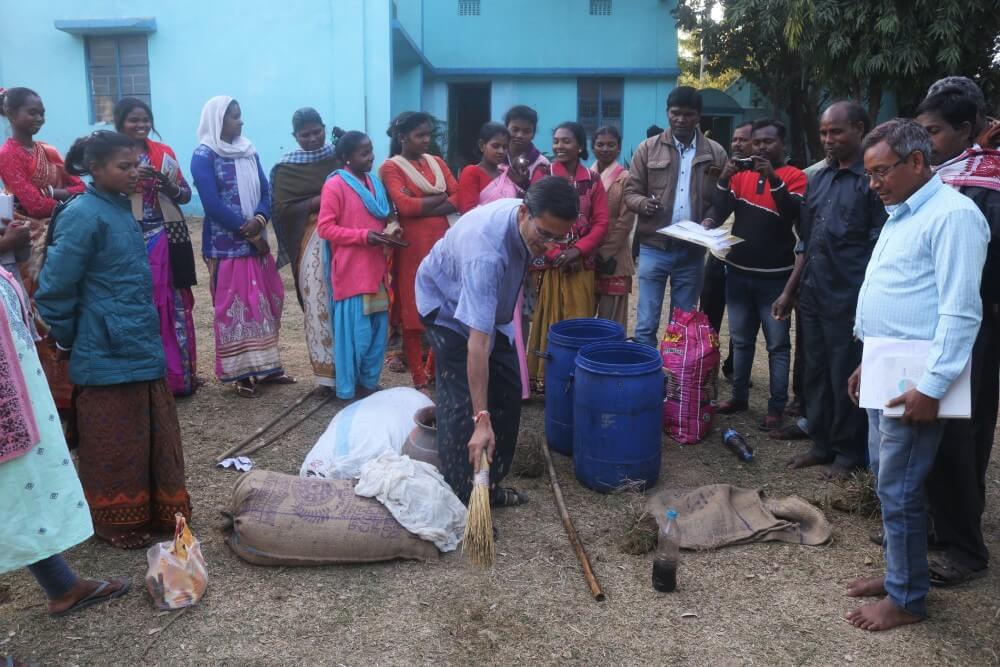
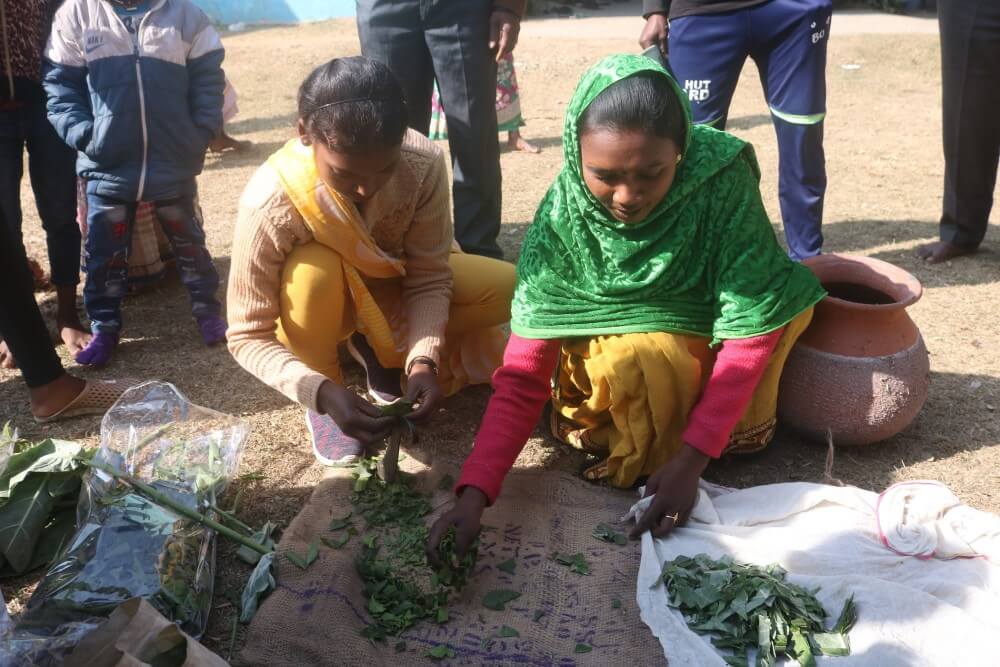
Ranjitha Lakra who was representing BIRSA, Noamundi shared that in her area no one is using organic fertilisers. If they face any problems with their soil the first thing they tend to do is to resort to the use of chemical fertilisers. She feels that compared to the past there aren’t as many cows and bullocks in the villages of her area. While a few households still have livestock there are many who don’t have any livestock which posses a challenge to creation of organic inputs. She liked this training a lot as she got to learn about how to encourage farmers to adopt organic practices. She really liked learning about the preparation and use of organic pesticides and pest repellents. In her area farmers buy and spray chemical pesticides but now she will go back and share about these organic pesticides with the farmers and explain to them how they can use these natural and organic pesticides to combat pests and diseases in their fields.
Chottu Sabar a farmer from Mirgichami Sabar Tola shared that he found the training very rewarding and that he would use the skills he learnt on his own lands to ensure better production through organic means. He also shared that he cultivates a variety of vegetables in his lands which include brinjal, chilli, potato, shim (Flat green beans), lauki (Bottle gourd), kumhra (Pumpkin). He also pointed out that he has been facing challenges with regards to diseases infecting many of his crops especially brinjal and tomato. He would try some of the organic pesticides once he returns and looks forward to support from the PBKSKS and the network to address these challenges in the future.
Gauri Sardar a farmer and community fellow from Dokarsai village, Potka Block, East Singbhum District, Jharkhand shared that currently majority of farmers in her area have adopted chemical farming practices. Now after returning to her village, she will spread awareness about organic agriculture among farmers and villagers through meetings and Gram Sabha. She will look to promote cultivation of desi seeds in the future. They live in a forest area and she would like to first set an example by carrying out organic cultivation herself and then she will use her example to encourage other farmers to adopt organic farming practices. She wishes to ensure that they can ensure that they can safeguard the health of the soil and subsequently the health of humans and other living beings continuously from one generation to the next.
The event concluded with a voted of thanks from Bibhishan Bhumij, the secretary of PCK who urged the participants to experiment with what they had learned in their own areas and build on it to promote and support the organic agriculture movement in their regions.

